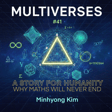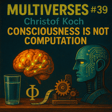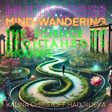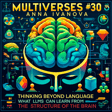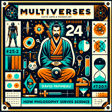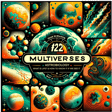
35| Hypercomputation: Why Machines May never Think Like Humans — Selmer Bringsjord
AI can do many things equally well as humans: such as writing plausible prose or answering exam questions. In certain domains, AI goes far beyond human capabilities — playing chess for instance.
We might expect that nothing prevents machines from one day besting humans at every task. Indeed, it is often asserted that, in principle, everything (and more) within the range of human cognition will one day fall within the ken of AI.
But what if there are concepts and ways of thinking that are off-limits to any machine, yet not so for humans? Selmer Bringsjord, Professor in Cognitive Science at RPI joins us this week and argues we need to rethink human thought.
Selmer argues that humans have been able to grasp problems that machines cannot — humans are capable of hypercomputation. Hypercomputation is computation above the Turing limit, as such it can solve problems beyond the power of any machine we can currently conceive.
In particular, Turing computation cannot encompass infinitary logic, yet humans have been able to reason effectively about the infinite. Similarly, Gödel’s theorem points to a class of riddles machines cannot reach, yet human genius has identified.
This is a huge topic, accepting Selmer’s arguments entails accepting that human minds work in a way that evades our understanding — their mechanisms obeying mechanics of which we are wholly ignorant.
Whether or not you agree with Selmer’s conclusions, this is a brilliant exploration of the boundaries of thought.
Links
